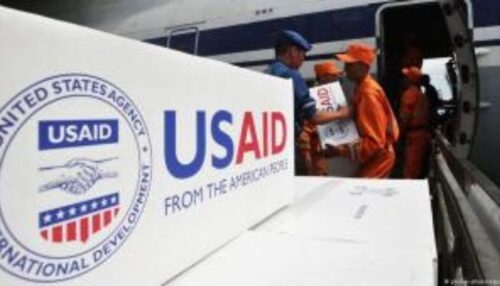On February 1, 2025, the official website of the United States Agency for International Development (USAID) went offline, signaling a potential shift in U.S. foreign aid policy under President Donald Trump, who recently returned to office after a four-year hiatus. By February 7, all USAID direct-hire staff worldwide—except those involved in mission-critical roles—are expected to be placed on administrative leave, according to an official update from the agency.
This development has raised alarms across Nigeria, where USAID has long been a key partner in areas like healthcare, education, economic development, and humanitarian aid. Experts warn that if the agency’s operations are fully suspended, the consequences could severely strain Nigeria’s already fragile systems.
USAID’s Longstanding Role in Nigeria
Since Nigeria gained independence in 1960, USAID has been instrumental in funding programs across sectors such as:
- Healthcare (HIV/AIDS treatment, malaria prevention, maternal and child health)
- Agriculture and food security
- Water, Sanitation, and Hygiene (WASH)
- Education and democratic governance
In 2024 alone, USAID allocated $2.3 million for the procurement of 4.8 million malaria tablets from Swiss Pharma, alongside nearly $100 million in funding for health initiatives, disaster preparedness, and other urgent needs.

The Ripple Effect of a Shutdown
If the shutdown proceeds, experts believe it will create a major humanitarian crisis in Nigeria. Auwal Rafsanjani, Executive Director of the Civil Society Legislative Advocacy Centre (CISLAC), expressed deep concern over the potential loss of life-saving support:
“The greatest concern is the essential support, such as life-saving drugs, that USAID provides. Even the smallest contributions from development partners have made a significant impact.”
Rafsanjani also criticized Nigeria’s dependence on foreign aid, highlighting issues like resource mismanagement and corruption that have hindered the country’s self-sufficiency.
Health Sector at Risk
The potential exit of USAID poses a direct threat to Nigeria’s healthcare system, especially in areas such as:
- HIV/AIDS treatment: Programs like PEPFAR (President’s Emergency Plan for AIDS Relief) currently provide antiretroviral drugs to thousands of Nigerians living with HIV.
- Maternal and child health: A reduction in foreign aid could lead to increased infant mortality rates and maternal deaths.
- Disease control and immunization: Nigeria’s preparedness for epidemics and immunization efforts could be severely compromised.
A senior official from the Ministry of Foreign Affairs, speaking anonymously, called the situation a “massive humanitarian setback,” emphasizing USAID’s role in strengthening Nigeria’s healthcare infrastructure.
A Call for Self-Reliance
While the looming withdrawal of USAID funding presents clear challenges, some see it as an opportunity for Nigeria to rethink its development strategy. James Ezema, a development expert, stressed the urgency of:
- Diversifying funding sources by seeking support from other bilateral and multilateral partners.
- Building local capacity to manage programs previously supported by foreign aid.
- Tackling corruption and improving resource management to reduce dependency on external assistance.
“The ‘feeding bottle’ is no longer available. It’s time for Nigeria to take full responsibility for its development,” Ezema remarked.
What’s Next for Nigeria?
Before the shutdown announcement, USAID had issued a Notice of Funding Opportunity (NOFO) for local organizations to support Global Health Security activities. While this indicated continued U.S. interest in Nigeria’s health sector, the uncertainty surrounding the agency’s future casts doubt on how long such programs can be sustained.
Public affairs analyst Alieu Ceesay warned that the impact wouldn’t be limited to Nigeria alone:
“USAID’s exit could affect economic development, food security, and governance across Africa.”
With an estimated 30% of Nigerians directly benefiting from USAID-funded programs, the Nigerian government faces an urgent need to develop a transition plan, secure alternative funding, and strengthen domestic resource mobilization to avoid a worsening humanitarian crisis.


